The Department of Human Oncology (DHO) has a strong commitment to training undergraduates who are interested in careers in cancer research. Through their work with faculty mentors, these students learn to think like scientists, gain hands-on skills, and begin to consider their future career paths. They also contribute to the DHO research agenda by conducting experiments and analyzing data.
In recognition of successful undergraduate research and the mentoring that facilitates this important activity, at least nine students will perform research in DHO this summer through specific research fellowships. We recently highlighted two of these students (Erika Jank and Caitlin Welch) who will work under the direction of Dr. Carri Glide-Hurst as American Association of Physicists in Medicine (AAPM) undergraduate fellows.
The following four students and their mentors have been awarded Hilldale Undergraduate/Faculty Research Fellowships, which provide each student with a $3,000 stipend and each mentor $1,000 to help offset research costs:
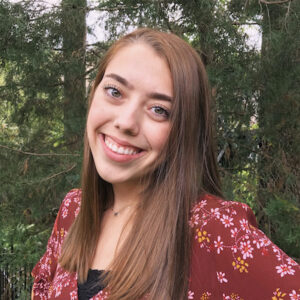
Samantha Bradley, a senior biology major who has worked in the Kimple Lab since Spring 2019, will be researching how inhibition of autophagy (a cell-protective mechanism) in combination with immunotherapy can improve treatment efficacy. She will use both in vitro and in vivo mouse models to study tumor immunogenicity and how the addition of immune checkpoint blockers and autophagy inhibitors improves tumor control. “I have learned so much in two years and have really gained a deeper appreciation for science and medicine by getting to experience the behind the scenes of cancer treatment/research,” Bradley says. “I am extremely grateful to be part of cancer research because I know that what I’m doing will help better direct treatment within the clinic and it feels like I am making a difference in the world!”
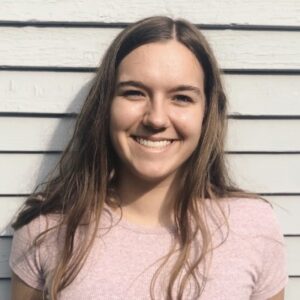
Carlene Kranjac, a senior pharmacology and toxicology major who works in the Wheeler Lab, will be working on a project that aims to differentiate between heterotopic and orthotopic mouse models as well as determining predictive biomarkers of the cell lines. “Working in the Wheeler Lab has given me so many opportunities to develop my communication and research skills,” Kranjac says. “In addition, it has exposed me to the field of oncology, something that I am now pursuing as a future career. Throughout my undergraduate career, lab members have been mentors to me and have always been supportive of my academic and career goals. I am so grateful for my opportunity to work in the Wheeler Lab.”
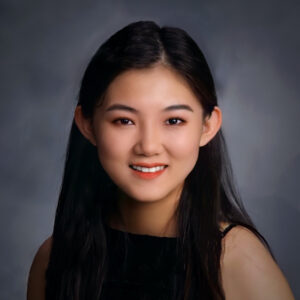
Qianyun “Lexi” Luo, a senior majoring in biochemistry and statistics in the Kimple Lab, will study the use of metabolic inhibitors to overcome radioresistance in head and neck cancer and the effects of cell culture medium glucose concentration in common cancer research assays. “Dr. Kimple has been a huge support to me,” Luo says. “I am so grateful for the many opportunities my experience in the Kimple Lab has opened for me.”
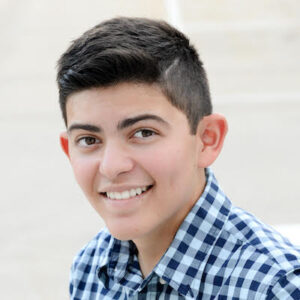
Alejandro Onate, a senior majoring in biochemistry and music in the Morris Lab, will be studying the pharmaceutical agent NKTR-214 and its potential anti-tumor immune effects in combination with radiation. NKTR-214 is a PEGylated derivative of the IL-2 cytokine and has the ability to preferentially activate CD8+ effector T-cells and Natural Killer cells (over T-regulatory cells) by acting on the CD122 receptor. He will be conducting a general, preliminary study to outline its anti-tumor immune effects, and whether those effects can be employed to combat melanoma brain metastases. “I have grown much as a student and as a scientist through my work at the Morris Lab. I very much enjoy collaborating and interacting with the staff in the lab and have learned much from them,” Onate says.
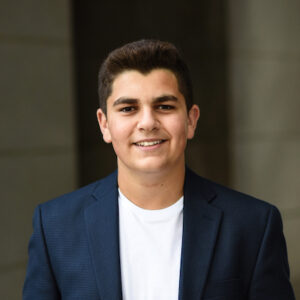
In addition to the Hilldale Fellows mentioned above, two other undergraduates have received awards and will be conducting research in the summer as well. Raad Allawi, a sophomore bioengineering major who works in the Morris Lab, earned a 2021 John Emory Morris Undergraduate Summer Research Award, which includes a $5,000 stipend. He will be working on several projects over the summer with the main focus on a multidisciplinary project that involves an iron oxide nanoparticle that works in conjunction with radiation therapy to create an in situ tumor response.
Allawi hopes to have a career in medical research. He’s not yet sure if he will pursue an MD, PhD, or both, but sees his work in the Morris Lab as a multi-year commitment that will help him refine his career goals while contributing to research. “This award is the first step, and I’m really looking forward to it,” Allawi says.
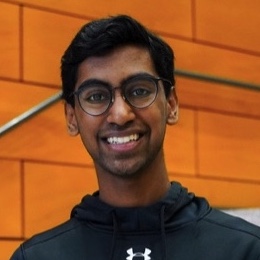
Shrey Ramesh, a biomedical engineering major who has worked in the Kimple Lab since February 2021, has been awarded a Sophomore Research Fellowship, which provides him a $2,500 stipend and $500 for his research adviser to help offset research costs.
Ramesh hopes to attend medical school and continue conducting translational research and sees this fellowship and his time in the Kimple Lab as integral to those goals.
“My work and experiences in the Kimple Lab make me a stronger student and scientist every day,” Ramesh says. “Dr. Kimple creates an excellent environment for undergraduate students by not only passing on incredibly valuable skills and knowledge regarding conducting and presenting research, but also making sure undergrads are truly involved as part of the lab and not just an afterthought.”
“Mentoring these students is one of the most rewarding parts of my job,” says Dr. Randy Kimple, DHO associate professor. “I love seeing them grow academically, evolve their thoughts about future plans, learn how to ask questions about the biology we study, and seek answers to their questions using the scientific method. We are incredibly fortunate to have such outstanding students who want to work with us.”